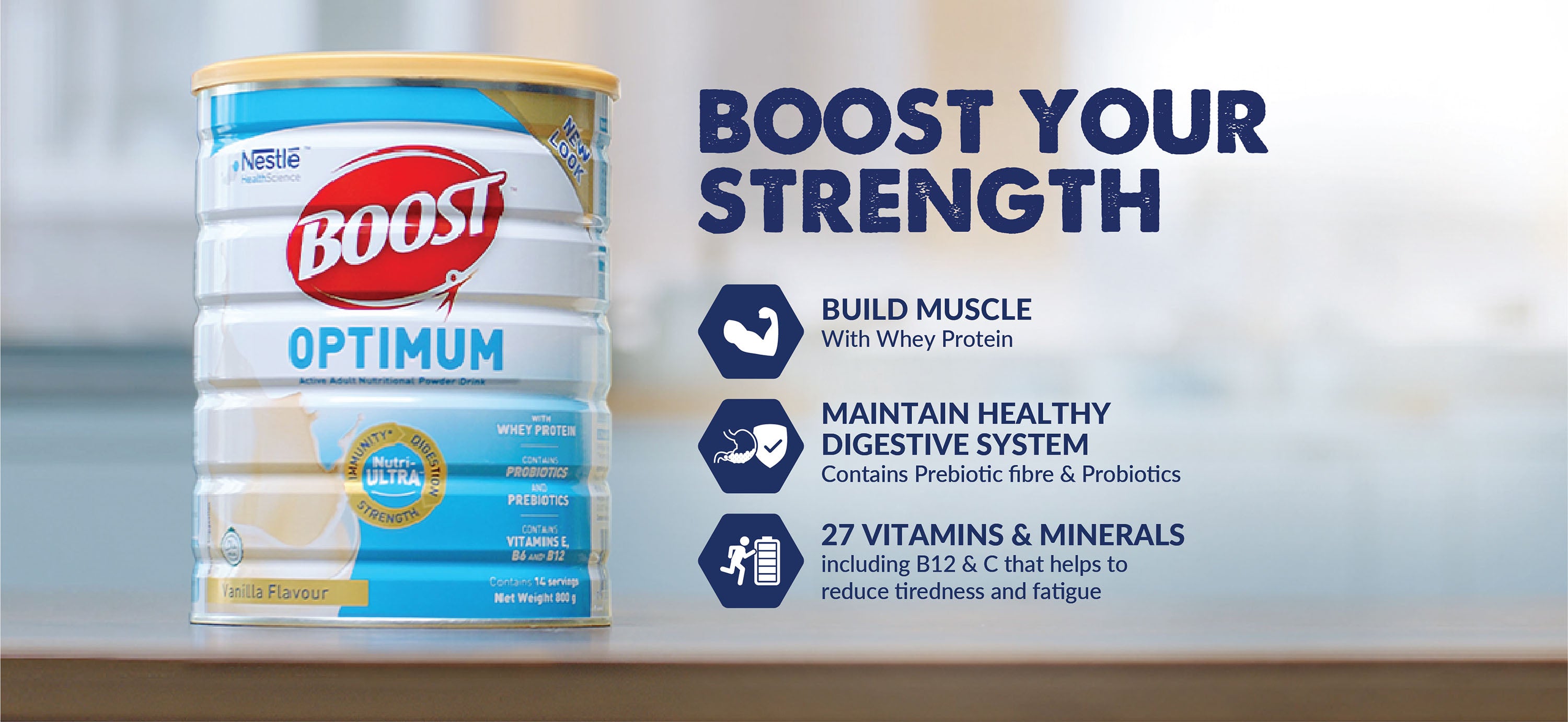
Gut Health
“All disease begins in the gut.” -Hippocrates
The health of our gastrointestinal system, or gut, is extremely important to our overall well-being. The gut needs to be properly nourish with good nutrition so that it can function to help our body fight off harmful invaders and perform myriad complex tasks which keeps us healthy.
Almost 70% of our immune system4, our body’s natural defence system, is located in the gut. The gut is home to a complex ecosystem of microorganisms, of which 100 trillion bacteria cells are responsible for the critical functions of our body’s digestive and immune system5.
This abundant network of microorganisms, also known as gut microflora or gut microbiota, performs a diverse range of functions. This expansive ecosystem is capable of affecting our body’s vitamin and mineral absorption, hormone regulation, digestion, vitamin production, immune response, and ability to eliminate toxins from the body6.
Picture gut microflora as a lush garden filled with an abundance of exotic and indigenous flora and fauna (good bacteria), which works in harmony to defend your body against foreign invaders and harmful pathogens (bad bacteria). Much like an overgrown garden, an imbalance in gut microflora will result in a compromised immune system and lead to a host of digestive issues such as gas, bloating and constipation.
An imbalance in gut microflora has been linked to certain autoimmune conditions and mood disorders such as depression, eczema, psoriasis, hormonal disorders and inflammatory conditions like joint pain and arthritis7.
What We Eat Affects The Gut
The composition of our gut microflora changes over time in accordance to our stress levels and what we eat.
To reap the benefits of a healthy gut and cultivate a healthy microflora, we must nourish the good bacteria. This can be achieved through good nutrition.
In recent years, probiotics have been included in food for its inherent health benefits. According to the World Health Organization, probiotics defined as ‘living microorganisms’, offers health benefits when taken in adequate amounts8. Probiotics, or good bacteria, has the ability to repopulate microflora and bolster the number of friendly bacteria in the gut9. Probiotics can be found in your local supermarket in fermented foods such as yogurt, tempeh, and kimchi.
Equally important to gut health, is the role of prebiotics. Prebiotics are non digestible carbohydrates which nourishes the good bacteria in the gut and acts as fuel for probiotics to flourish, and grow. Think of prebiotics as a fertilizer. If your gut is a garden, then the function of prebiotics is to support the growth of more good bacteria to further strengthen your body’s natural defences10. An example of prebiotic is Fructooligosaccharide (FOS), a type of dietary fibre found naturally in foods such as bananas, onions, tomatoes, wheat, chicory root, oats and soybeans.
The Role of Fibre for Good Gut Health
The benefits of eating a fibre rich diet is undeniable. A high intake of dietary fibre has been linked to reducing the risk of developing various conditions, including heart disease, stroke, diabetes, diverticular disease, and constipation11.
A recent study published in The British Medical Journal supports growing evidence that fibre is a critical gut-nourishing nutrient12. Dietary fibre is found primarily in vegetables, fruits, beans, and whole grains, and is made up of a combination of soluble and insoluble fibres.
Soluble fibre dissolves in water, and in doing so, helps slow down digestion and allow the body to absorb vital nutrients from food. It plays a key role in managing diarrhoea as the soluble fibre absorbs excess fluid in the bowel by producing short chain fatty acids (SCFA), a result of fermentation, thus adding bulk to loose stool13. Soluble fibre can be found in fruits, oats, legumes and barley.
Meanwhile, insoluble fibre helps food pass through the digestive system promoting regular bowel movement and preventing constipation. Examples of insoluble fibre include wheat, whole grains, legumes, carrots, cucumbers and seeds.
Dietary fibre, with its blend of soluble and insoluble fibre, is a crucial component in addressing bowel issues experienced by post stroke patients. A staggering 50% of stroke patients are likely to experience constipation14 as a result of prolonged inactivity, lethargy, medication, and insufficient water or nutrition intake, while one in five will develop diarrhoea14 due to complications arising from long term tube feeding.
Good Nutrition Goes a Long Way
According to the World Health Organization (WHO), good nutrition is a cornerstone of good health15.
Good nutrition is key to supporting the recovery process for someone who has experienced long-term illness. It can provide the body with essential vitamins and minerals needed to build strength, boost immune function, and restore overall health and well-being.
Give your immune system a fighting chance by nourishing your gut with the right nutrition.
References
Extracted from http://link.springer.com/article/10.1007/BF03180584
- Continence problems after stroke. Stroke Association. Retrieved from https://www.stroke.org.uk/sites/default/files/continence_problems_after_stroke.pdf
- V. Singh et al., “Microbiota dysbiosis controls the neuroinflammatory response after stroke,”The Journal of Neuroscience, doi:10.1523/jneurosci, 2016
- Dr. Michael D. Gershon. The Second Brain : The Scientific Basis of Gut Instinct and a Groundbreaking New Understanding of Nervous Disorders of the Stomach and Intestines
- Furness, J., Kunze, W., & Clerc, N. (1999). II. The intestine as a sensory organ: neural, endocrine, and immune responses. American Journal Of Physiology – Gastrointestinal And Liver Physiology, 277(5), G922-G928
- Caitriona M. Guinane, Paul D. Cotter. Role of the gut microbiota in health and chronic gastrointestinal disease: understanding a hidden metabolic organ.Therap Adv Gastroenterol. 2013 Jul; 6(4): 295–308.
- Sai Manasa Jandhaya, Rupjyoti Talukdar, Chivkula Subramanyam. Role of the normal gut microbiota. World J Gastroenterol. 2015 Aug 7; 21(29): 8787–8803. Published online 2015 Aug
- Andrew W. Campbell. Autoimmunity and the Gut. Autoimmune Dis. 2014; 2014: 152428. Published online 2014 May
- Magdalena Araya, Catherine Stanton, Lorenzo Morelli, Gregor Reid, Maya Pineiro, et al., 2006, "Probiotics in food: health and nutritional properties and guidelines for evaluation," Combined Report of a Joint FAO/WHO Expert Consultation on Evaluation of Health and Nutritional Properties of Probiotics in Food Including Powder Milk with Live Lactic Acid Bacteria,Cordoba, Argentina, 1–4 October 2001, and Report of a Joint FAO/WHO Working Group on Drafting Guidelines for the Evaluation of Probiotics in Food, London, Ontario, Canada, 30 April–1 May 2002 [FAO Food and Nutrition paper 85], pp. 1–50, Rome, Italy:World Health Organization (WHO), Food and Agricultural Organization (FAO) [of the United Nations], ISBN 9251055130, see [1], accessed 11 June 2015.
- Marteau P, Seksik P, Jian R. Probiotics and intestinal health effects. Br J Nutr. 2002 Sep;88 Suppl 1:S51-7.
- Sabater-Molina, M., Larqué, E., Torrella, F. et al. Dietary fructooligosaccharides and potential benefits on health. J Physiol Biochem (2009) 65: 315. doi:10.1007/BF03180584
- Anderson JW, Baird P, Davis RH Jr et al, Health benefits of Dietary Fiber. Nutr Rev. 2009 Apr;67(4):188-205. doi: 10.1111/j.1753-4887.2009.00189.x
- Francesca De Filippis, Nicoletta Pellegrini, Lucia Vannini, Ian B Jeffery, Antonietta La Storia, Luca Laghi, Diana I Serrazanetti, Raffaella Di Cagno, Ilario Ferrocino, Camilla Lazzi, Silvia Turroni, Luca Cocolin, Patrizia Brigidi, Erasmo Neviani, Marco Gobbetti, Paul W O'Toole, Danilo Ercolini. High-level adherence to a Mediterranean diet beneficially impacts the gut microbiota and associated metabolome. Gut, 2015; gutjnl-2015-309957 DOI: 10.1136/gutjnl-2015-309957
- Chittawatanarat K, Pokawinpudisnun P, Polbhakdee Y. Mixed fibers diet in surgical ICU septic patients. Asia Pac J Clin Nutr. 2010;19 (4):458-464.
- Gönül Uraloglu, Barin Selcuk. Aydan Kurtaran, et al. Assesment of the bowel dysfunctions in stroke patients. Turkish Journal of Geriartrics. 2014; 17 (4) 331-337
- World Health Organisation. Extracted from http://www.who.int/topics/nutrition/en/

